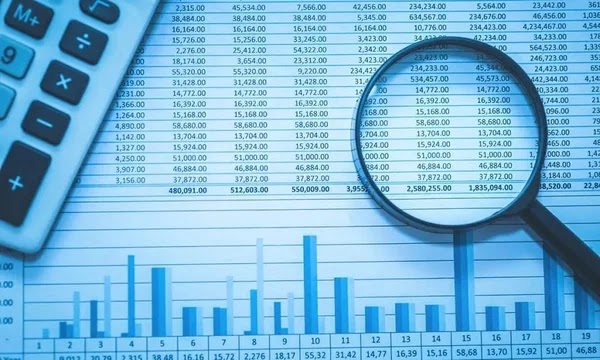Forensic Accounting: Combining Accounting, Investigation, and Legal Skills to Detect and Prevent Financial Crimes.
Criminological bookkeeping is the act of using bookkeeping, inspecting, and analytical abilities to aid legitimate issues.
It incorporates 2 fundamental regions - case backing, examination, and debate goal.
Suit support addresses the authentic show of financial issues connected with the existing or forthcoming case.
In this limit, the scientific bookkeeping proficiency measures harm supported by parties engaged with lawful questions and can help with settling debates, even under the watchful eye as they arrive at the court.
Assuming a question arrives at the court, the criminological bookkeeper might affirm as a specialist witness.
The examination is the demonstration of deciding if criminal matters like worker burglary, protection misrepresentation (counting adulteration of budget summaries), data fraud, and protection extortion have happened.
As a feature of the criminological bookkeeper's work, the person might prescribe moves that can be made to limit the future danger of misfortune.
The examination may likewise happen in common matters.
For instance, the measurable bookkeeper might look for buried resources separate from cases.
Criminological bookkeeping includes looking past numbers and getting a handle on the substance of circumstances.
It's more than accounting...
more than investigator work...
it's a mix that will be sought after however long human instinct exists.
Who wouldn't need a lifelong that offers such soundness, fervour, and monetary prizes?
To put it plainly, legal bookkeeping requires the main quality an individual can have:
- the capacity to think.
- A long way from being a capacity that is explicit to accomplishment in a specific field, fostering the capacity to think improves an individual's odds of coming out on top throughout everyday life, in this manner expanding an individual's worth in the present society.
- Why not become a criminological bookkeeper on the Forensic Accounting Masters Degree interface on the left-hand route bar.
Forensic accounting is a field that combines accounting, auditing, and investigative skills to assist in legal matters.
It involves two main areas: case support and investigation.
Case support involves presenting financial evidence related to legal disputes and can help in resolving disputes and serving as an expert witness in court.
The investigation involves determining if criminal matters such as employee theft, fraud, and insurance fraud have occurred.
As part of their work, forensic accountants may also recommend measures to prevent future incidents.
Forensic accounting requires the ability to think critically and understand the context of a situation.
It is a rapidly growing field with a high demand for professionals with strong analytical and investigative skills.
In recent years, due to the increasing number of financial crimes and frauds, forensic accounting has become a key area of expertise for organizations and government agencies.
Forensic accounting can be used in a variety of legal contexts, including civil litigation, criminal investigations, and regulatory compliance.
It is often used in cases involving financial fraud, embezzlement, money laundering, and other white-collar crimes.
Forensic accountants may also be called upon to investigate financial disputes in areas such as divorce and bankruptcy proceedings.
One important aspect of forensic accounting is the ability to analyze and interpret financial data.
This includes the ability to identify and trace financial transactions, analyze patterns of activity, and detect any unusual or suspicious activity.
It also involves the ability to understand and interpret complex financial documents, such as financial statements and tax returns.
Forensic accountants also must be able to work effectively with other professionals, such as attorneys, law enforcement officials, and other experts in related fields.
They must be able to communicate complex financial concepts clearly and understandably and be able to present their findings in a court of law.
Forensic accounting is becoming increasingly important as organizations and governments around the world continue to focus on detecting and preventing financial crimes.
It is also a rapidly growing field, with many universities and colleges now offering forensic accounting programs and degrees.
As a forensic accountant, you will have the opportunity to work on high-profile cases, work closely with law enforcement agencies, and be a part of the legal process.
You will be able to make a real-world impact and help bring criminals to justice.
Forensic accountants are in high demand and the field is expected to continue to grow in the future.
With the increasing number of financial crimes and frauds, organizations and government agencies need specialized professionals with the skills and knowledge to detect and prevent these crimes.
Forensic accounting is a challenging and rewarding career that offers a unique blend of accounting, investigative, and legal skills.
If you have a passion for problem-solving and an interest in legal matters, a career in forensic accounting may be the right choice for you.

